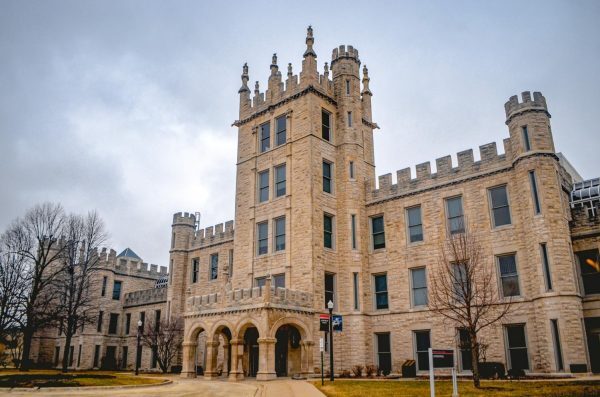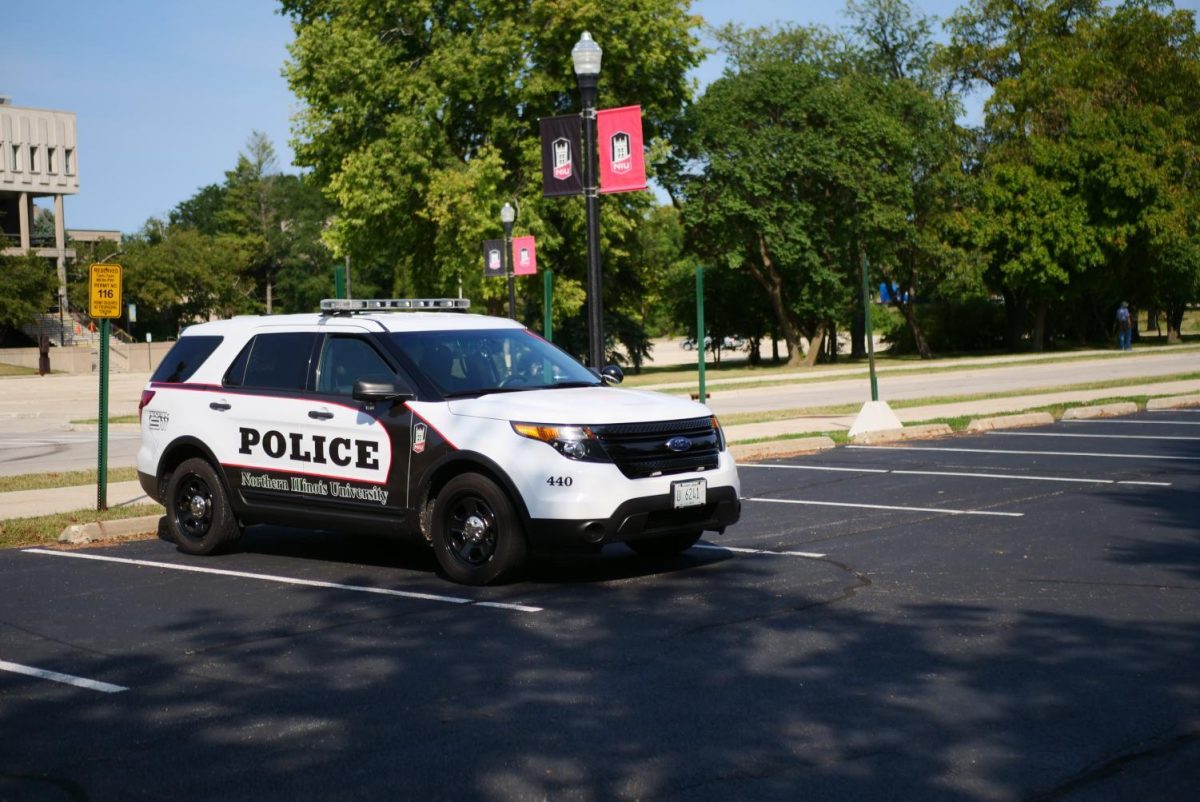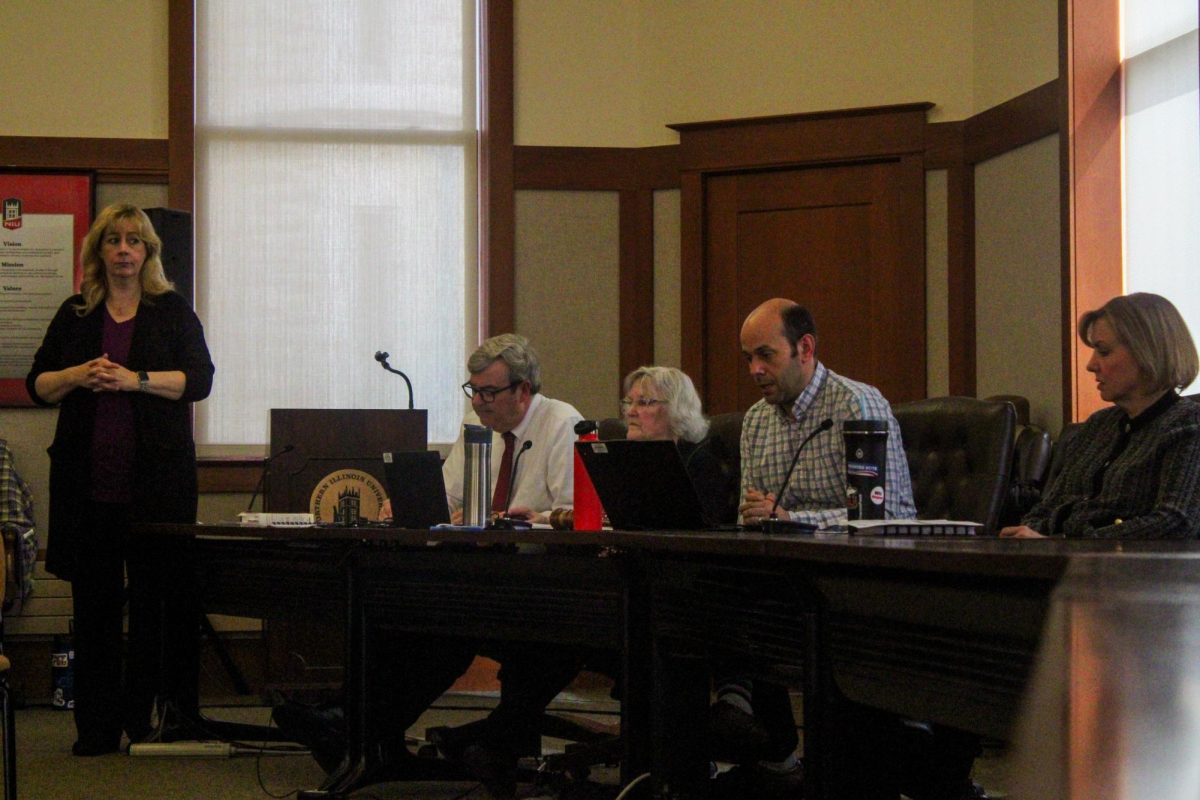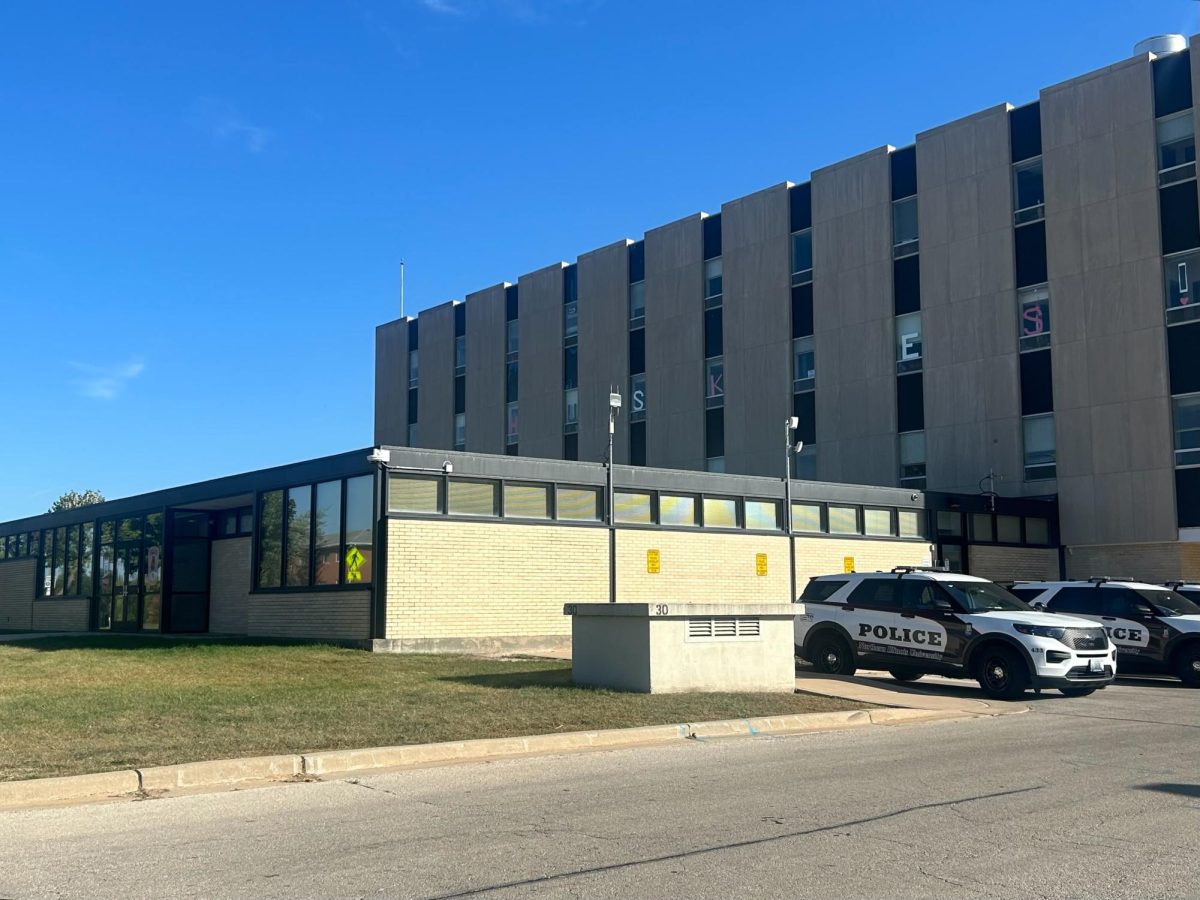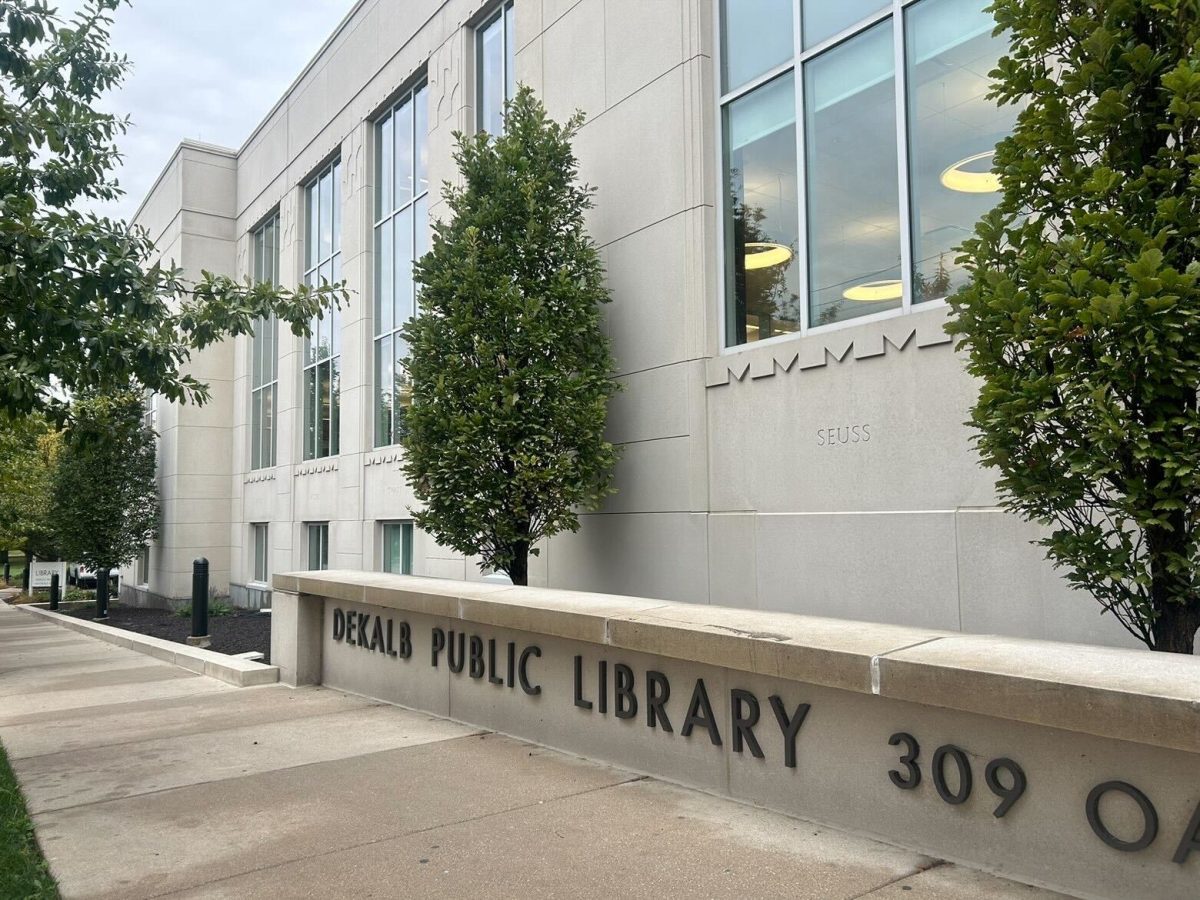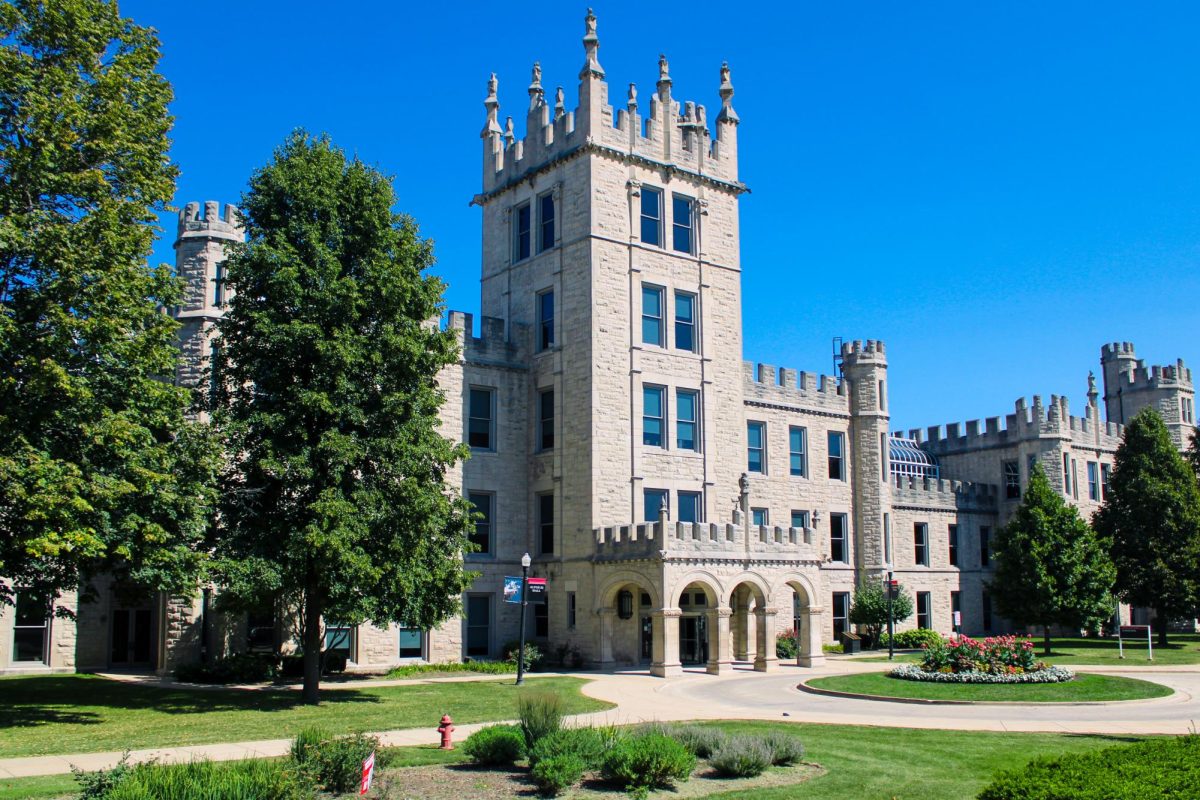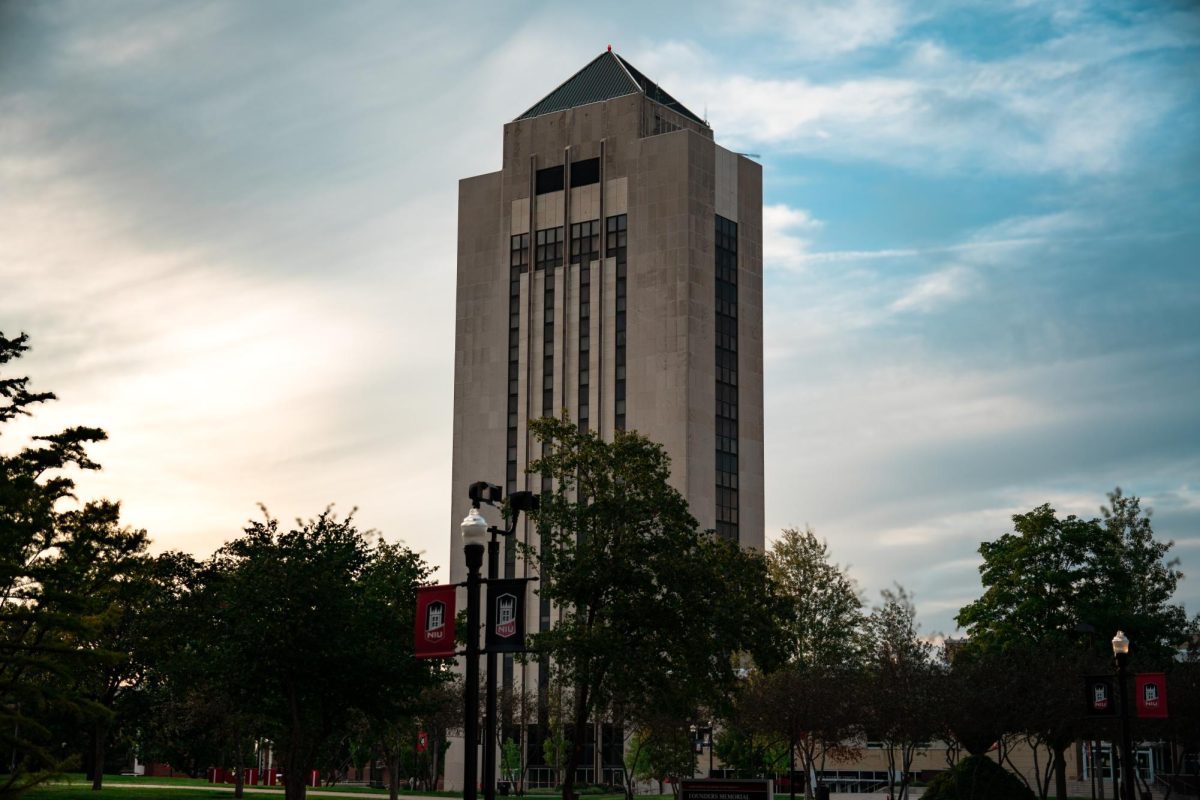DeKALB – NIU is making plans to cut its $32 million deficit in half by the end of fiscal year 2025.
At Wednesday’s Faculty Senate meeting, George Middlemist, vice president and chief financial officer, and Laurie Elish-Piper, interim executive vice president and provost, represented the Budget Planning Resource Group to discuss the university’s plan to cut into NIU’s $32 million deficit.
“The university must change in order to survive,” Middlemist said.
Middlemist and Elish-Piper said that, without any intervention, NIU’s budget deficit could grow to $40 million. The university’s goal is to identify strategies to reduce the deficit to $16 million by fiscal year 2025.
To reduce this deficit, Middlemist said NIU needs to focus on increasing revenue and decreasing expenses.
Middlemist said one way NIU Athletics is looking to reduce costs as well as increase revenue by negotiating new media rights.
Elish-Piper said NIU had a large number of 100-200 level courses with less than five students enrolled. The university has reduced those courses by 25% during Fall 2023.
“Through closing the number of sections, if we do that with great intensity and we actually reduce the number of low enrollment sections even more significantly, our partners at EAB have estimated that that could save us as much as $3.4 million,” Elish-Piper said.
To reduce expenses, the university is changing how much scholarship funding students get.
Elish-Piper said the university is currently over-awarding students to the point that they are receiving refunds because they have been given more aid than necessary to cover the cost of attendance.
“We really need to look much more strategically and intentionally about how we are awarding scholarship funding to students to make sure that we’re using those funds in the most planful kind of way,” Elish-Piper said.
The multi-year budget plan outlines cuts to niche academic programs.
“We’re asking folks to look at their degree programs and make sure that we are not requiring more credit hours than necessary,” Elish-Piper said. “Making sure that we’re not offering so many pathways or specializations that then force us to deliver courses for three or four students in a particular area.”
Middlemist said other individual expense reductions such as the sale of the Nursing Building, the sale of Hoffman Estates, and the conversion from landlines to Microsoft Teams Voice have helped.
“The conversion of Teams to voice got rid of all that desktop telephones. It’s an example of things that we can stop doing,” Middlemist said. “Coming out of the pandemic, I stopped answering my phone, my phone actually stopped working, and I didn’t even pay attention to it because I could just answer the phone on the computer. So, that saved us a little less than half a million dollars. So, not a ton of money. But every bit helps, right?”
Middlemist said the Budget Planning Resource Group will continue to identify revenue opportunities and expense reduction, as well as reallocation through November, compile the findings in December and January and present the results in February.
Middlemist said NIU will need to generate new sources of revenue, reallocate resources to grow revenue and increase student recruitment and retention.
Middlemist said the budget planning group recommends four main ways to increase revenue: requesting more support from the state; attempting to boost revenue from auxiliaries (such as the Holmes Student Center, housing and dining); reevaluating the budget’s 41 funds; and working with the Division of Outreach, Engagement and Regional Development to find new revenue programs.
To get funding from the state, Middlemist said he and Elish-Piper and Matt Streb, the chief strategy officer, and President Lisa Freeman have been meeting with legislators and the Illinois Board of Higher Education to help them understand the role the entities have in NIU’s finances.
“We just had a meeting with the IBHE to explain to them what we need from the state to really help us to begin to address the budget deficit,” Middlemist said. “And we will present that to the board next Thursday, what our request is. It’s aggressive, but it’s also very realistic for them to get help from the state.”
Elish-Piper said the Division of Outreach, Engagement and Regional Development will be one of the keys to increasing revenue. To increase revenue, the OERD will look into attracting more adult learners to programs like ReUp which focuses on attracting students who left NIU before receiving their degree and creating a cybersecurity degree completion program.
In addition, Elish-Piper said the university will be piloting a J-term or January term, courses that would take place from December to January.
Faculty Senate will be meeting next at 3 p.m. Nov. 29 in Altgeld Hall’s Auditorium.


